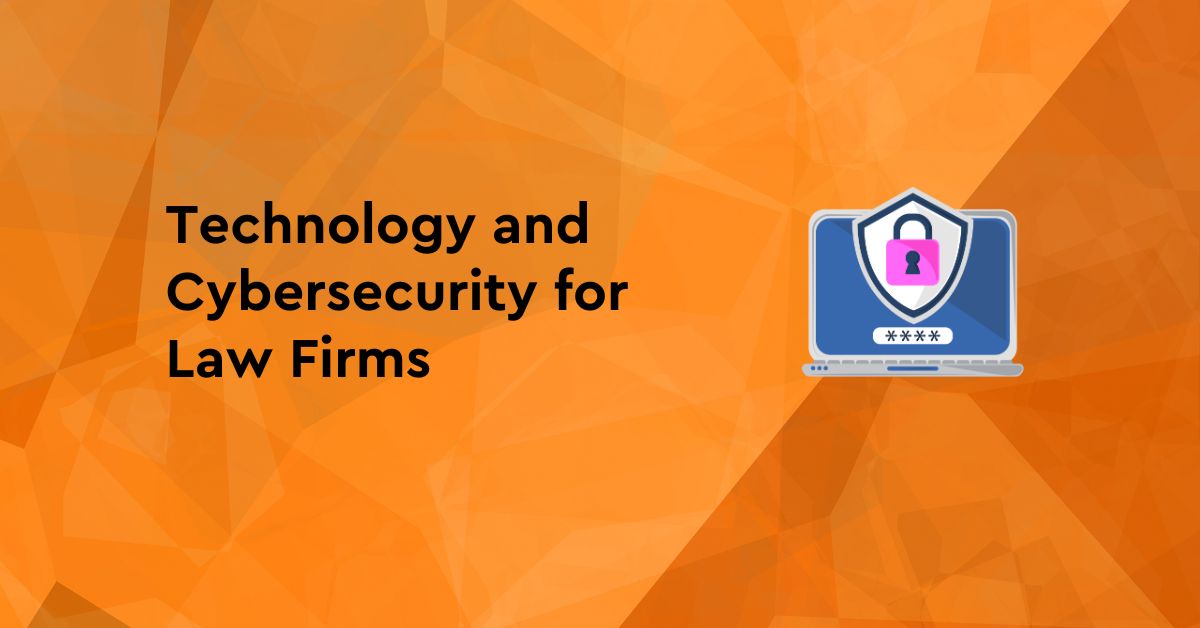In today’s rapidly evolving legal landscape, law firms face increasing challenges in adopting and maintaining robust cybersecurity measures while leveraging technology to enhance service delivery. As specialists in providing Managed IT and Network services to law firms and solicitor practices, we understand the importance of complying with the strict standards set by the Solicitors Regulation Authority (SRA). This article highlights key practices for law firms to ensure they are not only adhering to regulatory guidelines but also safeguarding their clients’ data against cyber threats.
1. Why Technology is Crucial for Law Firms
The legal services sector continues to embrace technology to reduce costs and increase efficiency. For small and medium-sized firms, technology can provide affordable solutions, while larger firms are under pressure to innovate and streamline operations to meet the growing demands of their clients.
As law firms increasingly use AI, cloud computing, and other advanced technologies, they must remain vigilant about cybersecurity. The SRA’s guidelines stress that the duty of confidentiality remains paramount, whether information is exchanged via email, letter, or through digital tools.
2. Cybersecurity Best Practices
To ensure law firms maintain both compliance and a secure digital environment, the SRA, in collaboration with the National Cyber Security Centre (NCSC), has outlined essential cybersecurity tips:
- Security Arrangements: Ensure that security measures do not hinder productivity. Security systems should protect your staff and business without impeding day-to-day operations.
- System Maintenance: Keep all IT equipment, software, and devices up to date with the latest patches to fix vulnerabilities. Outdated systems should be replaced immediately to avoid exploitation.
- Antivirus and Firewalls: Install reliable antivirus software on all devices and ensure that firewalls are active. These measures provide a primary layer of defence against potential cyberattacks.
- Backup Data Regularly: Protect client and business data by backing it up frequently. Cloud storage solutions are affordable and effective for ensuring data recovery after incidents such as ransomware attacks.
- Mobile Device Security: For employees working remotely, encrypt laptops and enable remote data wiping if devices are lost or stolen. Protect mobile devices with complex passwords and consider using mobile data over public Wi-Fi for better security.
3. Phishing Attacks: The Key Threat
Phishing remains one of the primary threats to law firms. Criminals use fake communications to steal sensitive information or funds. Law firms should educate staff on recognising phishing attempts and implement procedures for reporting suspicious communications.
Best practices to mitigate phishing risks include:
- Educate Staff: Ensure all staff are trained to spot phishing emails and understand the firm’s operating procedures.
- Implement Clear Reporting Protocols: A clear process for reporting suspicious emails can help protect the firm from financial and data breaches.
- Use Routine Warning Messages: Inform clients and partners about your bank details and warn them that these will not change during transactions, to prevent fraud.
4. Password and Access Controls
The importance of secure access to sensitive information cannot be overstated. Implementing strong password policies and two-factor authentication (2FA) helps protect systems from unauthorized access. It’s essential to:
- Use Complex, Non-Predictable Passwords: Avoid using simple or easily guessable passwords. Ensure that staff use longer and more secure passwords.
- Limit Administrator Access: Only those who need administrative privileges should have them. This reduces the risk of potential misuse.
5. Training and Ongoing Testing
Continuous training and testing are vital in maintaining a cybersecurity-conscious culture within the firm. Staff should:
- Understand Security Measures: They should be aware of the importance of security measures and their role in protecting client data.
- Participate in Simulated Phishing Tests: Regular tests can help ensure that staff are prepared for real-world cyber threats.
Testing systems for vulnerabilities, especially with the use of advanced technologies such as AI, can help ensure that the firm’s cybersecurity practices are robust and effective.
6. SRA’s Recommendations for Law Firms
While the guidelines and best practices we have outlined provide a solid foundation for cybersecurity, the SRA has specific recommendations for all law firms to ensure they remain compliant and secure:
- Know Your Obligations: Firms must understand the requirements of the Code of Conduct and Accounts Rules, especially concerning the handling of client money and information.
- Have Cyber Risk Procedures: Develop and maintain clear procedures for dealing with cyber risks. Ensure all staff are trained to recognize phishing and other common cyber threats.
- Incident Reporting: Cyber incidents involving personal data must be reported to the Information Commissioner’s Office (ICO) within 72 hours. Any breach involving missing client money must be reported immediately.
- Engage with Insurers: Ensure that your firm’s insurance covers cybercrime incidents. Firms should have a contingency fund for cyber threats.
- Control and Review Risks: Regularly assess and update your firm’s risk management practices. Consider obtaining certifications like Cyber Essentials Plus to demonstrate your firm’s cybersecurity maturity.
This article serves as a reminder and for informational purposes only. For detailed guidelines and recommendations on cybersecurity practices, we strongly encourage law firms to review the full report published by the SRA. You can access the full report on the SRA website


